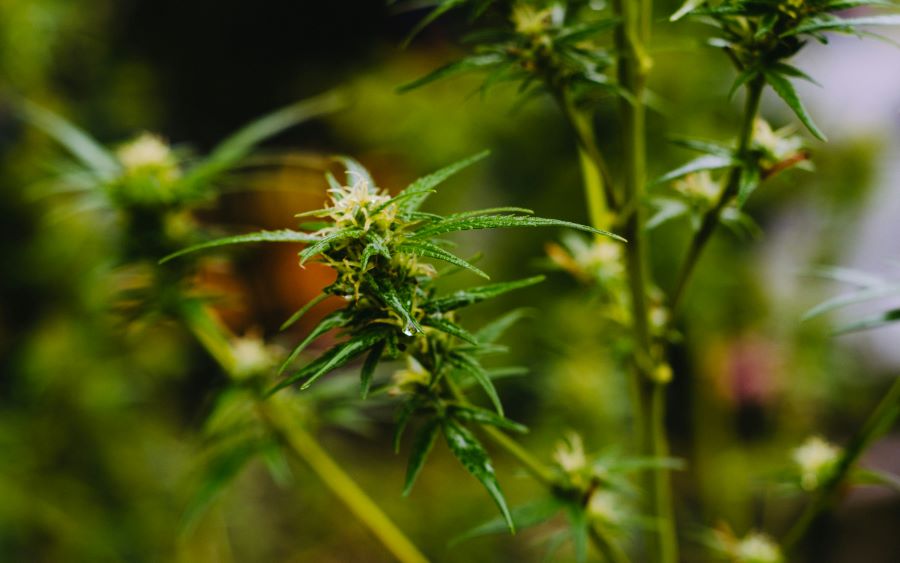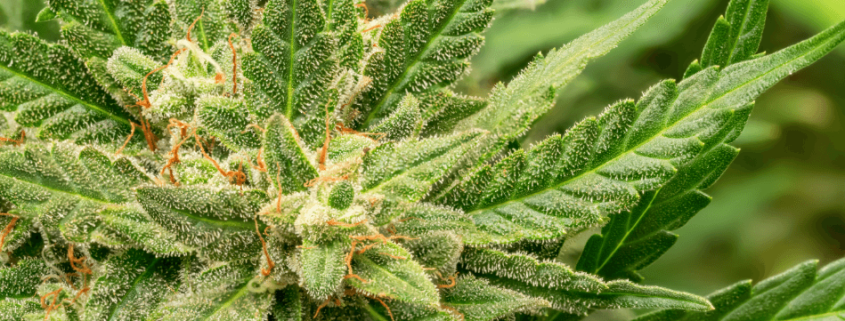What is CBC Cannabinoid? Benefits and Uses of Cannabichromene
CBC cannabinoid is gaining attention in both wellness and medical communities. Like CBD, CBC is a non-psychoactive compound, meaning it doesn’t cause a “high.” It interacts with the body’s systems to potentially offer various health benefits. People are exploring cbc benefits for things like reducing inflammation and pain relief. As more research unfolds, CBC is becoming a popular option for those seeking natural, therapeutic solutions without the psychoactive effects often associated with THC.
What is CBC Cannabinoid?
Cannabichromene (CBC) is one of the many cannabinoids found in the cannabis plant, alongside other well-known compounds like THC and CBD. Discovered in the 1960s, CBC is still being researched, but early studies suggest it offers numerous benefits for health and wellness.
Here’s a breakdown of what makes CBC important:
- Non-Psychoactive Nature: Unlike THC, which causes the “high” sensation, CBC is a non-psychoactive cannabinoid. This means it does not produce any mind-altering effects, similar to CBD. People looking for therapeutic benefits without psychoactivity often explore CBD benefits over CBD vs. CBD and THC.
- How It’s Produced: CBC is produced naturally in the cannabis plant. It starts as CBCA (Cannabichromenic Acid), and when the plant is exposed to heat and light, CBCA transforms into CBC cannabinoid. This process is similar to how THC and CBD are formed in the plant.
- Chemical Structure: CBC, like other cannabinoids including CBD and THC, shares a similar chemical structure. However, it interacts with the body in different ways, particularly with the CB2 receptors in the endocannabinoid system (ECS). These receptors are associated with managing inflammation and pain, making CBC known for its anti-inflammatory properties.
- Potential Benefits: One of the key benefits of CBC is its potential to help with inflammation and pain relief, much like CBD. CBC is also being studied for its impact on neural stem progenitor cells, which play a role in brain health and regeneration.
CBC is a promising cannabinoid with unique properties. It may not be as well-known as thc and cbd, but its non-psychoactive nature and anti-inflammatory properties make it a valuable option for those seeking natural health solutions.
How CBC Works in the Body?
Cannabichromene (CBC) interacts with the body’s endocannabinoid system (ECS), a network of receptors that helps regulate things like mood, pain, and inflammation. The ECS has two main types of receptors: CB1 and CB2. While CB1 receptors are found in the brain, CBC mainly interacts with the CB2 receptors, which are located throughout the body, especially in the immune system.
Unlike THC, which binds to CB1 receptors and causes a “high,” CBC cannabinoid doesn’t affect the brain in that way. Instead, CBC works with the CB2 receptors to help reduce inflammation and pain, which are some of the key CBC benefits. This is one reason people often compare CBC vs CBD—both are non-psychoactive and can offer relief without mind-altering effects.
CBC may also support brain health. Studies show that it can boost the function of neural stem progenitor cells, which are important for brain growth and repair. This makes CBC an interesting option for those looking to improve wellness in natural ways.

Potential Health Benefits and Effects of CBC Cannabinoid
Cannabichromene (CBC) offers several health benefits, making it an important part of the growing interest in cannabinoids. Like CBD, CBC cannabinoid doesn’t cause a “high” but still interacts with the body in ways that promote wellness.
Here are some of the main cbc benefits:
- Reduces Inflammation: CBC is known for its ability to lower inflammation, which can help with conditions like arthritis and other inflammatory diseases. This is why it’s often compared in the debate of cbc vs cbd for pain relief.
- Pain Relief: CBC works well with other cannabinoids to relieve pain. It doesn’t directly affect the brain like THC but works by interacting with the body’s receptors to reduce discomfort.
- Supports Brain Health: Some research suggests that CBC cannabinoids may support brain health by boosting the growth of brain cells. This makes CBC a potential option for those looking to improve long-term brain function.
- Fights Depression: Early studies show that CBC may have mood-boosting properties, which could help those dealing with depression or anxiety.
In summary, what is CBC Cannabinoid? It’s a non-psychoactive compound with multiple health benefits, from reducing inflammation to supporting brain health, making it an attractive choice for natural wellness seekers.
How CBC Differs from Other Cannabinoids?
Cannabichromene (CBC) is one of many cannabinoids found in the cannabis plant, but it stands out for its unique effects. Here’s how CBC compares to other well-known cannabinoids like CBD, THC, and CBG:
- CBC vs CBD: Both CBC cannabinoid and CBD are non-psychoactive, meaning they won’t make you feel “high.” However, while CBD is often used for anxiety and sleep, CBC is more known for its anti-inflammatory and pain-relief properties. People may prefer CBC for conditions like chronic pain or inflammation.
- CBC vs THC: THC is the main psychoactive compound in cannabis, causing the “high” feeling. What is CBC Cannabinoid in comparison? Unlike THC, CBC doesn’t affect the brain in this way, so it’s a better option for those who want the health benefits of cannabis without the mind-altering effects. This makes CBC a popular choice for people seeking relief from pain or inflammation without the psychoactivity.
- CBC vs CBG: CBG is another non-psychoactive cannabinoid like CBC, but they differ in their medical uses. While CBC cannabinoid is often linked to pain relief and brain health, CBG is studied more for its potential to treat conditions like glaucoma and bladder issues.
Overall, consumers might choose CBC benefits over other cannabinoids because it provides relief without psychoactive effects and shows promise in helping with long-term health conditions like pain and inflammation.
What is CBCA?
CBCA (Cannabichromenic Acid) is the raw, inactive form of cannabichromene (CBC). It’s one of many cannabinoid acids found in the cannabis plant. CBCA doesn’t directly provide health benefits on its own, but it plays a critical role in the creation of CBC. When cannabis is exposed to heat or sunlight in a process known as decarboxylation, CBCA is converted into active CBC. This process occurs naturally as the plant ages, but can also be accelerated through human intervention, like smoking or vaporizing cannabis.
CBCA is similar to other cannabinoid acids like THCA (the precursor to THC) and CBDA (the precursor to CBD). Though not as well researched as its active form, scientists believe CBCA could have therapeutic potential. However, most of the CBC benefits are attributed to the active compound, CBC, which has been shown to help with inflammation, pain, and possibly brain health.
Cannabis Strains and Products High in CBC
If you’re interested in trying CBC cannabinoid, several cannabis strains naturally contain higher levels of CBC, though they also include other cannabinoids like CBD, CBG, or THC. Some strains to look out for that have significant CBC content include:
- 3 Kings: A hybrid strain known for its relaxing effects and pain relief, making it popular among people dealing with inflammation.
- Maui Dream: This sativa-dominant strain is prized for its energizing effects and is believed to be higher in CBC, which contributes to its anti-inflammatory benefits.
- Purple Cadillac: Known for its calming and sedative properties, this indica strain has a notable CBC presence, making it ideal for people seeking relief from chronic pain or stress.
In addition to cannabis flower, cannabichromene CBC can also be found in various products like oils, capsules, and even topicals. As interest in CBC continues to grow, more products specifically targeting the CBC benefits are hitting the market, giving consumers options to use CBC without the need to smoke or vaporize cannabis. These products allow for more precise dosing and can be tailored to specific health needs, whether for pain relief, mood improvement, or inflammation control.
CBC cannabinoid is a non-psychoactive compound from cannabis that offers significant health benefits, particularly for inflammation and pain relief. Unlike THC, CBC won’t cause a high, making it a popular option for those seeking natural remedies. When comparing CBC vs CBD, CBC stands out for its potential in treating long-term pain and inflammation. As research continues, cannabichromene (CBC) is gaining attention, and more products are becoming available to help people explore its therapeutic potential.





